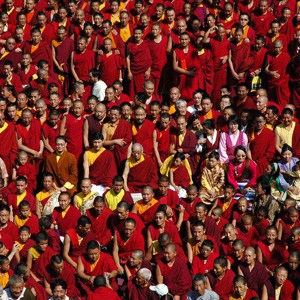Ethical conduct
Ethical conduct
A talk given during Sravasti Abbey’s annual Exploring Monastic Life program in 2010.
- Dharma practice is predicated on good ethical conduct
- Monastic precepts and their advantages
- To promote harmony within the sangha community
- To transform the society
- To bring about individual liberation
- The ultimate advantage is for the Dharma to be forever sustained
- Shift in perspective after taking the bhikshuni ordination
- Questions and answers
- Why did the nuns get the vow for the garlic when they already would have been breaking the vow to not cut plants?
- Do you think lay people could sustain the Dharma too or is it not possible?
- What is the difference between confessing a mistake to the sangha and confessing by yourself?
- Why shouldn’t lay people read the precepts?
- Why can’t monastics cut flowers?
- If you receive novice ordination in the Tibetan tradition and then get full Bhikshuni ordination in another tradition, how does that affect your relationship with your root guru?
Venerable Thubten Chodron
Venerable Chodron emphasizes the practical application of Buddha’s teachings in our daily lives and is especially skilled at explaining them in ways easily understood and practiced by Westerners. She is well known for her warm, humorous, and lucid teachings. She was ordained as a Buddhist nun in 1977 by Kyabje Ling Rinpoche in Dharamsala, India, and in 1986 she received bhikshuni (full) ordination in Taiwan. Read her full bio.


